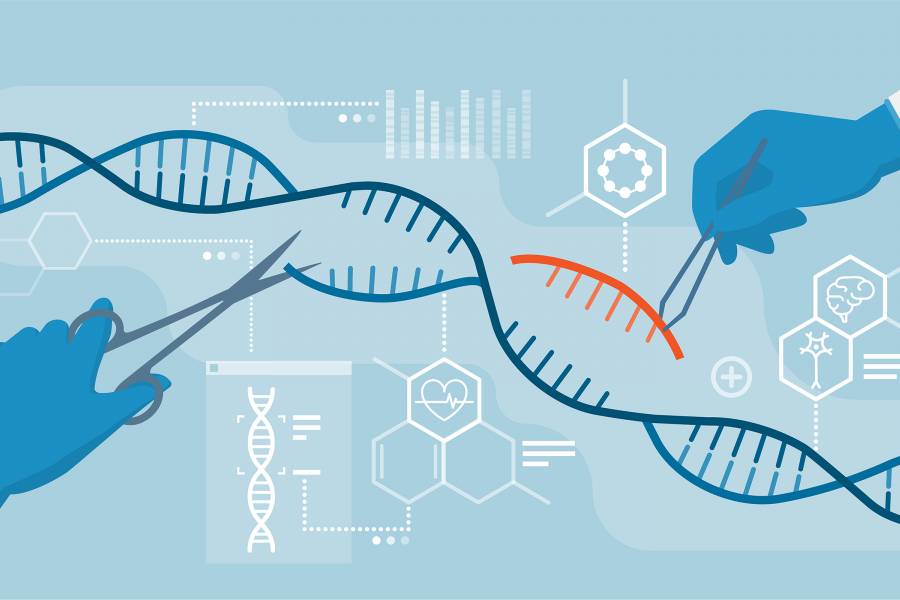The Dilemma of Genome Editing
June 10, 2021
DNA (Deoxyribonucleic acid) is defined as “the carrier of genetic information. This means that it serves as the “code” of human bodies, determining everything from the color of our eyes, color and hair type, growth hormone production, to even IQ and susceptibility to diseases and much more.
Each person’s DNA is determined before their birth, by the sperm and egg cells that become them. When these cells duplicate, the DNA serves as instructions for what they become. Through this process, they have genetic codes that are passed down from their parents, with traits that are passed down from their bloodline. It should also be noted that there is a lot of mutation in DNA. Sometimes, DNA does not copy itself correctly when creating new cells, leading to random changes in the embryo’s genetics. This process is how humans have evolved, with some mutated DNA leading to changes that permit the child to survive and reproduce more effectively than others. It also can lead, however, to devastating congenital diseases, including but not limited to cerebral palsy, cystic fibrosis, down syndrome, diabetes, and dangerous heart conditions.
Until recently, whatever set of genes an embryo got was not changeable. However, with the advent of genome editing technology in the late 1900s, that is all susceptible to change. Although only used in testing on animals and bacteria so far, gene editing shows promise to work on humans in the near future. In the time leading up to then, the ethical dilemma surrounding the technology must be considered.
The following is a list of positive possibilities gene editing would offer:
- The removal of congenital diseases like the ones listed earlier. Millions of people with different birth defects and diseases are born every year, leading to reduced quality of life for all and death for many.
- Gene editing has a promising ability to cure cancer, as seen in 2015 when it cured a Leukemia patient after all else failed. This is unrelated to genetic editing on unborn children, but it uses the technology nonetheless.
Here is a list of popular concerns with the genome editing:
- The creation of designer babies. In a world with easy access to gene-editing, many people fear the possibility of people customizing their children to be better off in society, whether that means making them more physically attractive, tall, or smart. This, in many people’s eyes, would take away from the natural way of life in an undesirable way.
- The financial disparity between people who could afford to modify their children vs. those who couldn’t. Well-off parents being able to make their children smarter, stronger, taller, or whatever other characteristics would only set them up for success, therefore increasing the wealth gap.
- The edited embryo is not capable of giving consent to the changes they are undergoing.
- The editing of germline (sperm and egg) cells. If this were to happen, edited people would pass down their changes to future generations.
Clearly, there is great potential for genome editing to positively impact many lives, but the ethical drawbacks are equally important and should be considered in depth before launching any use of gene-editing to the public. Whether that means banning it entirely, permitting it only for the use of curing disease, or allowing it to exist freely, the answer will be revealed in the near future.
